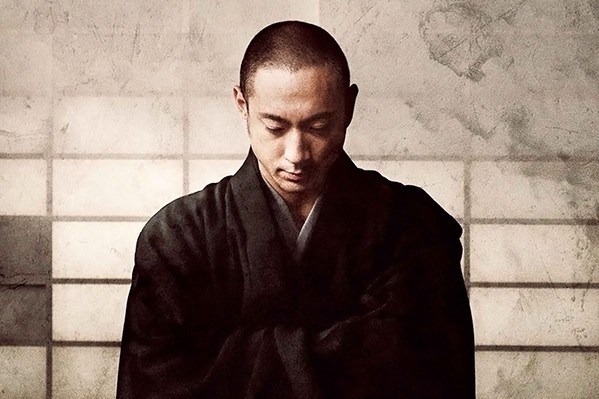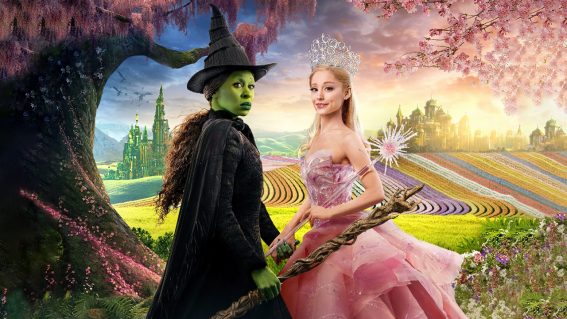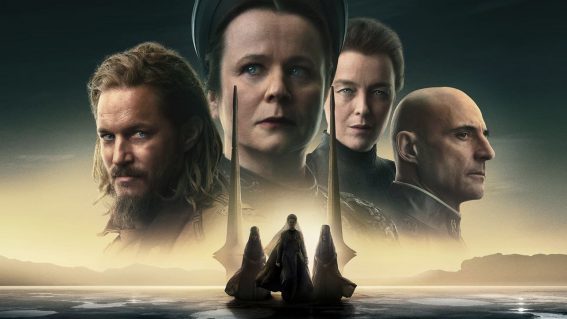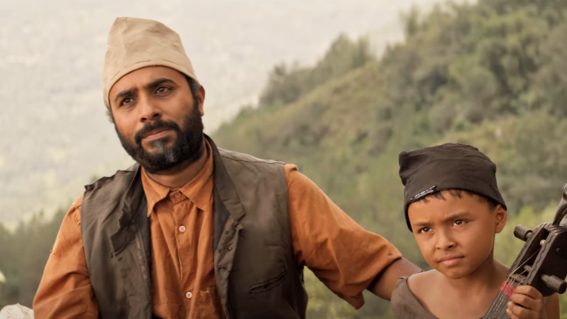Japanese Film Festival: The Highlights

The Japanese Film Festival is almost upon us – currently in Australia and about to touch down in Auckland from November 6th to the 12th. Their massive line-up is full of gems, and for those looking for the best picks and for those perhaps not fully up to the play with the Land of the Rising Sun’s cinematic output, we give you our highlights. For full info, visit the Japanese Film Festival website.
THE HEADLINERS
Opening night selection for this year’s festival, and loosely based on the Audrey Hepburn musical My Fair Lady, this is a Cinderella story tracing the transformation of a country bumpkin into a refined geisha.
Haruko travels to Kyoto to become an apprentice geisha, only to be turned away due to her lack of cultivation. By coincidence, she comes across a linguist professor who takes her on as a bet that he can transform her.
SAYS VARIETY:
“A gorgeously appointed and exuberantly choreographed geisha musical.”
Rurouni Kenshin, Kyoto Inferno (Part II) and The Legend Ends (Part III)
2012 live-action manga adaptation Rurouni Kenshin is screening, alongside its two new sequels. Set in the early Meiji period, follows wanderer and former assassin Himura Kenshin (Takeru Satô) who traverses the countryside offering protection to those in need, hoping to atone for his life of murder. In Kyoto Inferno and The Legend Ends, Kenshin takes on an evil rival and his attempt to overthrow the government.
SAYS TWITCH FILM (OF KYOTO INFERNO):
“Delivers grand thrills… improves considerably on the enjoyable first feature while setting the scene for the soon to follow finale.”

Ask This of Rikyu (Rikyû ni tazuneyo)
Based on the award-winning novel by Kenichi Yamamoto, a fictionalised account of the medieval figure, Tea Master Rikyu (Sen no Rikyu). The story reimagines the life of the great master and the events that lead to him being condemned to death by suicide in 1591.
During his career Rikyu designed tearooms and implements for traditional tea ceremonies, becoming an important influence on the continued practice today. In particular, he developed the wabi-cha style of tea ceremony. Elegantly shot, and focused on the beautifully precise practice of the tea ceremony.
COMEDY
A university dropout takes a job at a logging company in this rural, absurdist Japanese comedy. Culture clash ensues as our city slicker hero interacts with the villagers and their old style traditions and beliefs (not least, their fertility rituals).
Thermae Romae & Thermae Romae II
Adapted from the Mari Yamazaki manga series, this time-travelling two-parter follows Lucius – an architect from ancient Rome. Failing to get his Roman bathhouse plans green lit, he finds inspiration in modern day Japan (similarly awash in bath houses, or sentō) when he transcends time in a spa-bath portal. Thermae Romae was a massive box office hit in Japan.
SAYS THE GUARDIAN:
“Definitely on the kooky end of the scale.”
CULT CRAZINESS
Ju-on : The Beginning of the End
Marks part seven of Takashi Shimizu’s Japanese horror franchise (the source of US remake, The Grudge).
The curse of the Saeki family continues. To quickly recap: the origin of the curse is a result of the vengeful murder of Kayako, her son Toshio and their pet cat by their respective husband/father because he is convinced his wife is having an affair. A horrific curse is born and the spirits of the victims haunt the property. The Beginning of the End sees a primary school teacher visit the house in response to a truant student. Her visit does not go well…
Japanese cinemagoers have voted JU-ON as the most frightening of all horror series, above rival franchises The Ring and Saw. Not for the faint of heart.
An audience hit earlier this year at the NZ International Film Festival, Why Don’t You Play in Hell? makes a welcome return to the big screen.
Severed-tongue-in-cheek flick from cult Japanese writer-director Sion Sono (Cold Fish, Love Exposure) about a group of wannabe documentary movie-makers who inject their flash-mob filming technique straight into a yakuza-filled gangwar. Winner of the Midnight Madness People’s Choice Award at the Toronto Festival 2013.
Bloody, hilarious, and in love with cinema as a vital force, this is one of the most thrilling, weird movie experiences you’ll have all year.
SAYS FLICKS:
“Packs celluloid fetishism, toothpaste commercials, Bruce Lee worship, yakuza film crews and gallons of arterial spray into a delightfully goofy, wildly entertaining two hours.”
FOR FOODIES
A Tale of Samurai Cooking: A True Love Story
The closing night film of the festival is this drama based on the real-life story of the Funaki household, a renowned family of samurai chefs.
Funaki Dennai laid the foundations for Kaga clan cuisine in the Edo Period, preparing food for the nobility. The story of the clan is told here, from the perspective of a woman who marries Funaki’s son. Features meals made according to the Funaki family’s recipe collection Ryori Mugonsho and recreates the workings of samurai family kitchens at the time.
SAYS HOLLYWOOD REPORTER:
“Not resorting to the usual comic antics in films involving cooking contests and culinary connoisseurs … conjures a warm broth of a film.”
Celebrated noodle chef Kazuo Yamagishi is the subject of this Japanese documentary, exploring his passion for ramen, his eccentric personality and how these qualities combine to draw in customers from all over Japan.
At Yamagishi’s ramen shop, East Ikebukuro Taishoken, customers wait in line for over two hours to enjoy his legendary dishes in an establishment he has run for 50 years. A decade in the making, The God of Ramen goes beyond the broth to delve deep into the heart and soul of this man, who infuses his dishes with such dedicated passion.







